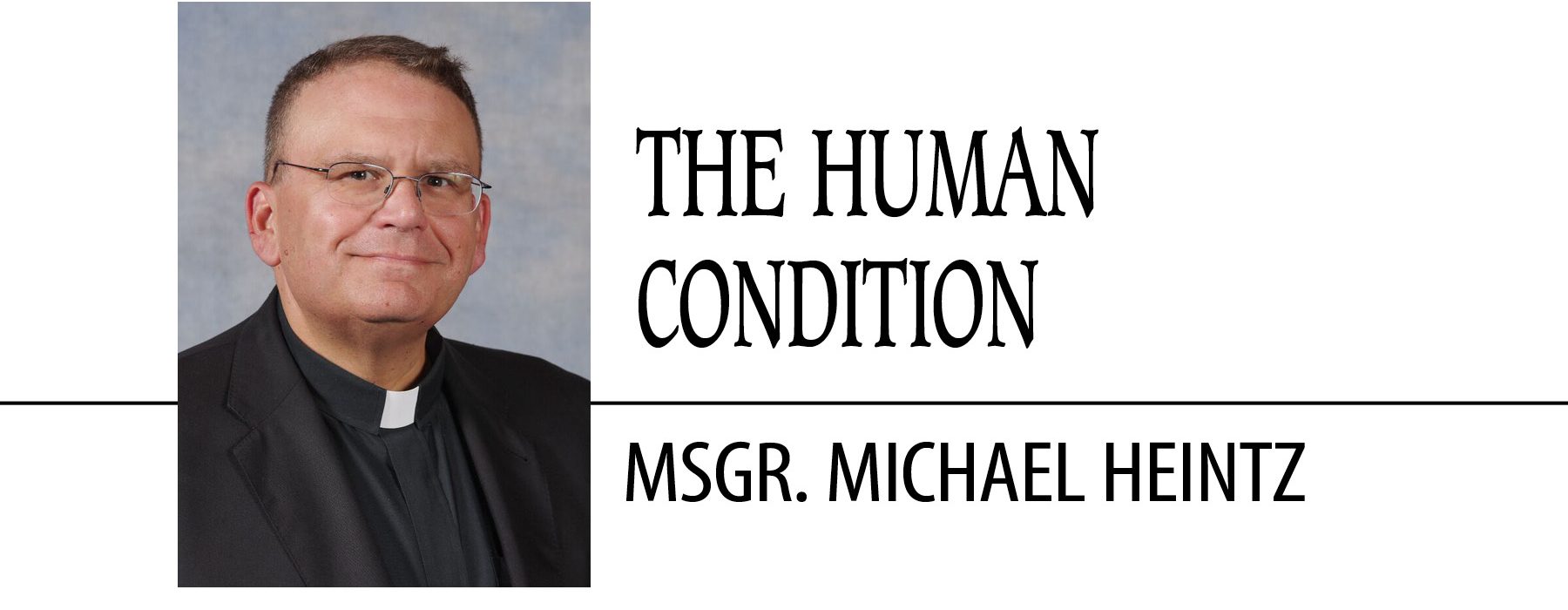October 6, 2020 // Perspective
How to be a witness to the truth
In the Scriptures, the Devil is called “Diabolos,” which by the time of the New Testament comes to mean “Slanderer,” but derives from the Greek verb “to divide.” The Devil is the great Divider.
The world — the society and culture in which we live — is increasingly divided and seems daily more polarized, and there is little doubt in my mind that there is a diabolical dimension to what we are living through. Politically, culturally and even within the Church, the divisions seem deeper than ever, and far too often good folks are at each other’s throats. Nerves are raw and on edge, and a deep sense of just how broken and upside down the world is seems to be everywhere right now.
The 24-hour news cycle and an endless engagement with social media only make this worse. Add a world under the grip of COVID-19 and the responses it has evoked, and it only magnifies our weaknesses and exacerbates what is already wrong with us.
Don’t get me wrong. Many very important questions and issues are at stake. I do not suggest for a minute that they should not invoke strong, at times passionate, responses. Nor do I mean that we should not speak clearly about our convictions and beliefs. We must stand with and in the Truth. But I also am deeply convinced that the Evil One has taken advantage of our current situation to drive wedges in our lives: in our nation, in our communities, perhaps in our parishes or even our families.
My invitation — and I speak as much to myself as to anyone else — is to resist the urge to buy into and to feed that division. Again, my point is not to say, “can’t we all just get along?” Clearly, regardless of where one is on any spectrum, there are real differences of view and opinion. It’s not a matter of surrendering conviction, but of being able to speak the truth in love. To be honest with one another, but without demonizing one another. To differ, but to assume, in charity and in the absence of evidence to the contrary, the best motivations in others, rather than assuming what those motives or intentions are, since none of us can see the heart of another.
I believe we have witnessed a significant cultural shift even within my own lifetime. I am honored to be a graduate of Marian High School. One of my classmates and closer friends was (and still is) something of a strident atheist; he’s highly intelligent, well-read, and today a very successful and nationally respected lawyer. We spent four years (and beyond) arguing and debating one another: and yet all the while we respected and truly cared about one another. In short, our differences did not lead to anger, resentment, or hatred. I could say to him, “I think you’re dead wrong; and I still love you.”
Sadly, in our current context, disagreements about important things (and even unimportant ones) are far too often personalized: if you disagree with me, then we must be enemies. We feel compelled to vilify and abuse our opponents. That is precisely the attitude that the Divider wants to foster in us. And such an attitude only feeds and kindles those tensions, divisions, resentments, and anger that are coming to mark our culture.
Christ came to free us from the grip of the Diabolos, the Divider. Jesus, who is Truth, is the only one who can truly liberate us from him. Christ spoke with what the Evangelists describe as “parrhesia,” a boldness, confidence, and candor. But he also spoke always with love.
Yes, sometimes love does indeed mean speaking the “hard truths.” But one litmus test of our own moral condition is whether we take pleasure in disagreeing with another, whether we take delight in correcting another, whether we find satisfaction and self-vindication in arguing with another, as if the aim is merely to “win” rather than to bright the truth to light.
The virtuous person will correct another with regret, he will engage in an argument reluctantly, not with zest.
The Evil One will use our good will, distort it and then allow such disagreements to become an opportunity for self-assertion and for what St. Augustine calls “libido dominandi,” the lust for power, the desire to dominate others (so thus the Devil has us, unwittingly, playing his game and by his rules). We may stand with the truth. Our convictions may be correct. We may be right. Our arguments may be spot-on. And yet, the Devil still finds a way of subverting our best intentions to undermine our own efforts, and thus has us defeating ourselves by inducing pride and self-righteousness, only driving a further wedge between us and those with whom we disagree.
Jesus, Truth-in-the-flesh, looked with mercy and tenderness even upon those who mocked and ridiculed Him. He looks with the same mercy and love upon us, who so often fail Him as well. And He invites us to follow Him, and not to buy into the Divider’s rebellion. May we stand with the apostles and the saints, recommit ourselves to Him, speak the truth in charity, and learn to love as He loves.
Msgr. Michael Heintz is on the faculty of Mount St. Mary’s Seminary, Emmitsburg, Maryland.
The best news. Delivered to your inbox.
Subscribe to our mailing list today.






